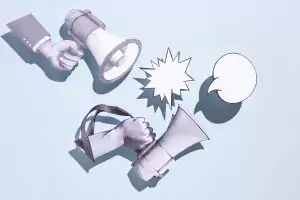
✅ AI Essay Writer ✅ AI Detector ✅ Plagchecker ✅ Paraphraser
✅ Summarizer ✅ Citation Generator
Granted, there are different ways of writing outlines for academic assignments, but the best all-around way of writing them is based on hints to yourself. Instead of writing detailed outlines, which will confine your thinking to a certain set of ideas, write an outline that will act as a cue giver. It is like having a reminder during the process of writing drafts.
This way is usually ideal, as writing academic papers are quite flexible from the start, as your thesis statement can change, the topics you discuss can change, and the research you use to substantiate your clams can change. Though I used the word “can,” it most likely will alter.
Here’s an example of a reminder outline below:
Thesis Statement: Cats are lovable pets, as they are extremely fluffy, make cute sounds, and have endearing eyes.
Introduction:
Background on how people have adored cats throughout the ages.
Why people adore them now.
Thesis statement.
1st Main Body Paragraph: They are extremely fluffy.
– Why humans love fluffy animals, especially the fluffiness of cats (science).
2nd Main Body Paragraph: Make cute sounds.
– How the sounds of cats affect humans emotionally (science).
3rd Main Body Paragraph: Have endearing eyes.
– How humans enjoy cats’ eyes (science).
Conclusion: summary and afterthought (we will continue to love them for as a long as they are alive).
As you can see, this kind of outline is simple. The more space you give yourself in your outline for flexibility, the more you will feel at ease to be inspired and creative during the writing process. It is important to have small descriptions of each section of the essay, but it is not necessary to expound on each section in detail. You don’t want to write a pre-draft that is as long as a first draft, and then realize you need to change everything in it.
Follow us on Reddit for more insights and updates.
Comments (1)
Welcome to A*Help comments!
We’re all about debate and discussion at A*Help.
We value the diverse opinions of users, so you may find points of view that you don’t agree with. And that’s cool. However, there are certain things we’re not OK with: attempts to manipulate our data in any way, for example, or the posting of discriminative, offensive, hateful, or disparaging material.




need help connecting problem statement, sub-problems, and independent variables